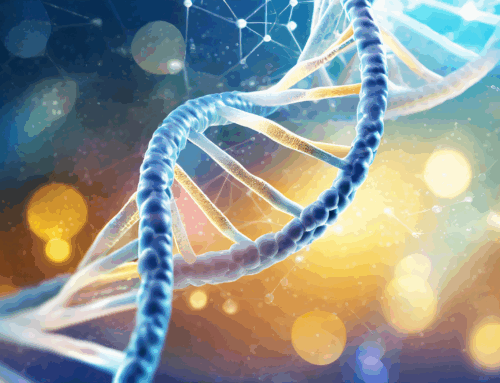Grief is more than sadness—it’s a complex, deeply personal process that affects every layer of our being. Whether triggered by the loss of a loved one, a relationship, a job, or even a way of life, grief can manifest in physical, emotional, mental, and energetic ways. One often-overlooked symptom is what many refer to as “grief brain.”
What Is Grief Brain?
Grief brain isn’t just in your head—it’s real, and it’s disruptive. It’s a term used to describe the cognitive fog that often follows a profound loss. These symptoms can feel alarming, especially for individuals who are typically sharp, organized, and mentally agile. While it’s commonly associated with forgetfulness or mental fog, the impact runs much deeper.
People experiencing grief brain may feel like their entire system is misfiring. This mental fog is your brain’s way of coping with overwhelm and emotional trauma. The stress of grief activates the brain’s limbic system—our emotional control center—and pulls resources away from the prefrontal cortex, which is responsible for logical thinking and focus. It’s not that you’re losing your mind; your mind is just busy trying to survive something deeply painful.
You’re Not Imagining It
One of the most frustrating aspects of grief brain is how invisible it can be to others. From the outside, everything may look “normal,” but internally, your system is working overtime just to get through the day. It’s important to understand—and to remind yourself—that these symptoms are valid and expected. You’re not lazy, forgetful, or broken. You’re grieving.
Common Symptoms of Grief Brain
You’re not imagining it. These symptoms are common—and valid—responses to grief:
- Cognitive Fog – confusion, difficulty with speech, trouble organizing thoughts, tracking conversations, or recalling details
- Severe Forgetfulness – missing appointments, misplacing things, forgetting familiar tasks
- Difficulty Sleeping – disrupted sleep patterns, vivid dreams, or insomnia
- Systemic Numbness – emotional or physical detachment, feeling disconnected from your body or surroundings
- Decreased Reaction Time – feeling slow to respond, physically or mentally
- Inability to Concentrate – reading the same sentence over and over, or zoning out during conversations
- Emotional Whiplash – rapid mood swings, crying unexpectedly, laughing then collapsing into sadness
- Paralysis or Freeze Response – feeling unable to start tasks or make decisions, even simple ones
- Overwhelm by Everyday Tasks – small chores can feel monumental, leading to avoidance or shutdown
- Apathy – a lack of interest in things you used to enjoy or care about
- Moments of Panic or Anxiety – sudden rushes of fear, shortness of breath, or racing thoughts
These responses aren’t signs of weakness—they’re signs that your system is trying to cope with something too big, too fast, too painful.
A Holistic and Naturopathic Approach to Grief Brain
As holistic practitioners and naturopathic doctors, we approach grief with compassion, curiosity, and a whole-body perspective. Healing isn’t about “getting over it.” It’s about creating space for the grief to move through you—gently, slowly, and in a supported way.
Here are a few ways we support those struggling with grief brain:
Grief can deplete your nervous system and zap your mental energy. We often recommend targeted supplements such as:
- Omega-3 fatty acids for brain health and emotional regulation
- B vitamins to support cognitive function and stress resilience
- Adaptogens for calming the mind without sedating it
- Mineral tranquilizers to soothe the nervous system and reduce anxiety
These supplements work gently with your body to bring mental clarity and balance during emotionally turbulent times.
Bach flower remedies are vibrational medicines designed to support emotional healing. Specific blends for grief might include:
- Star of Bethlehem for shock and trauma
- Sweet Chestnut for deep anguish
- Mustard for unexplained sorrow or depression
- White Chestnut for racing thoughts and inner restlessness
These flower essences don’t suppress emotions—they help you process and integrate them in a softer, more manageable way.
Reiki is a gentle yet powerful form of energy healing that can be profoundly comforting during grief. It helps calm the nervous system, reduce emotional overwhelm, and reconnect you with a sense of peace—however fleeting it may seem.
During Reiki, many clients report feeling held, supported, and “lighter.” It creates a safe energetic space for the grief to shift and evolve, rather than stagnate.
Grief often lives in the body as much as it does in the mind. Reflexology—focused touch therapy on the feet, hands, or ears—can help release tension, improve circulation, and support the nervous system.
Touch-based therapies remind the body it is safe, loved, and allowed to soften. They also provide grounding for those who feel disconnected or disoriented due to intense emotional pain.
Grief Is a Journey—You Don’t Have to Walk It Alone
There is no right way to grieve, and no single solution to “fix” grief brain. There is no checklist for grief, and there is no timeline. There are holistic paths to help you along the way—ones that honor your mind, body, heart, and spirit. With compassionate support and holistic care, you can begin to feel more like yourself again—one small step at a time.
You are not broken. You are healing.




